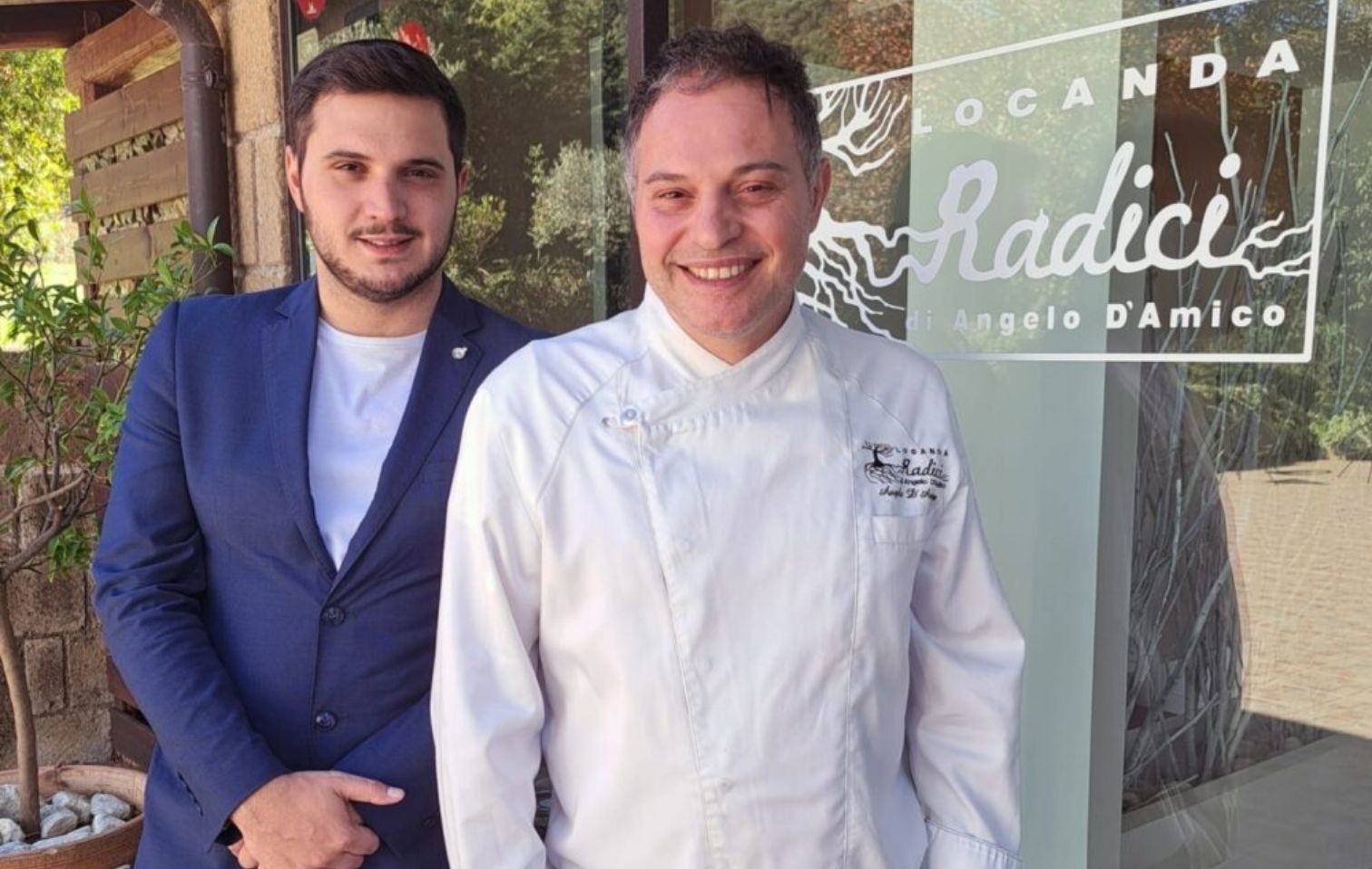Locanda Radici is a sacred and eco-friendly temple, respectful of the environment, where the gastronomic tradition of Sannio blends with the innovative vision of chef Angelo D'Amico. Each of his dishes tells a story linked to the territory and reinterpreted through modern techniques, with meticulous attention to the quality and provenance of the raw materials.
The territory
A jewel set among green hills and vast valleys, the municipality of Melizzano, located near the western slopes of Mount Taburno, represents the heart of Benevento's Sannio. The vineyards stretch for miles, creating a panorama that, seen from above, resembles a hand-embroidered fabric: each row draws a recurring and harmonious pattern, a perfectly woven velvet.
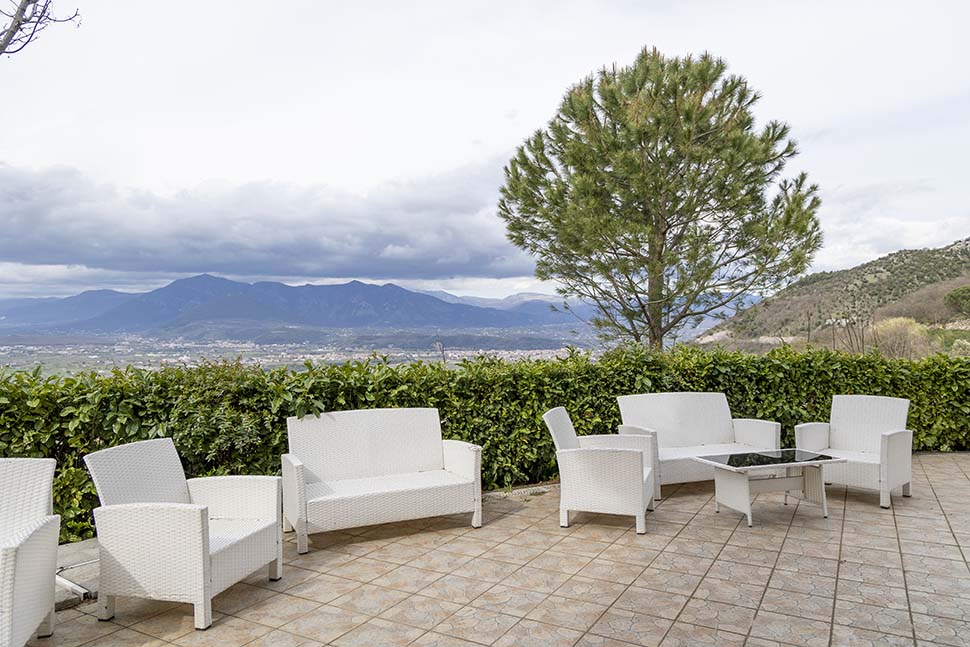
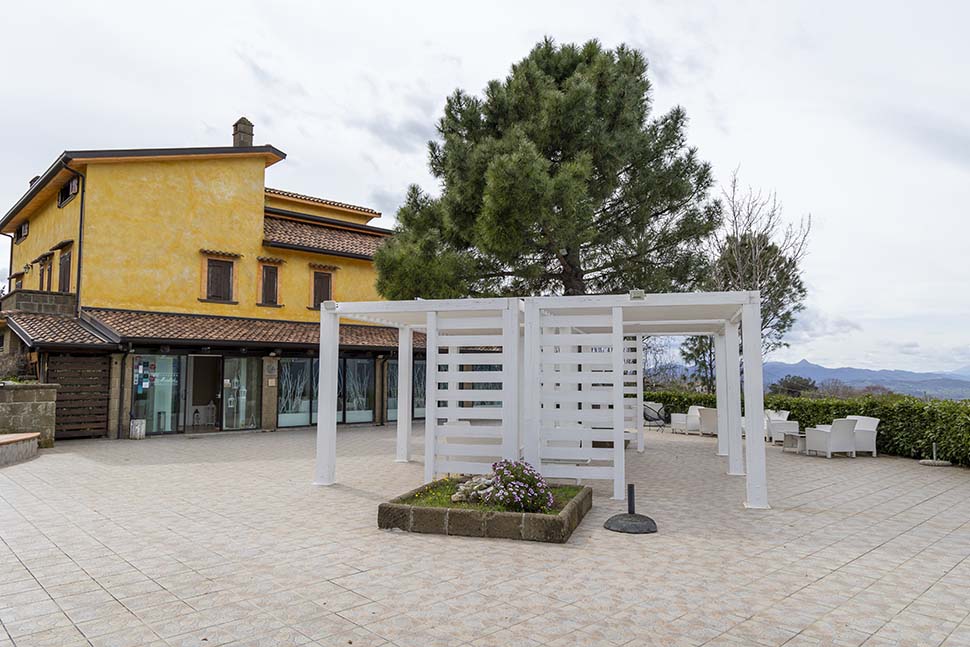
When the sun sets, brief and fleeting, it dyes the ancient olive trees and the silent countryside, suspended in time, golden: here man's handiwork and nature, alive, close in a warm, enveloping embrace, a refuge that protects from the rest of the world. Silvery streams gush lively and reflect the clear skies, the nearest feeding the lush crops and contributing to the sustenance of the rich vegetation. While the two main rivers, the Volturno and the Calore meet, merging synergistically, eventually flowing into Castel Volturno.
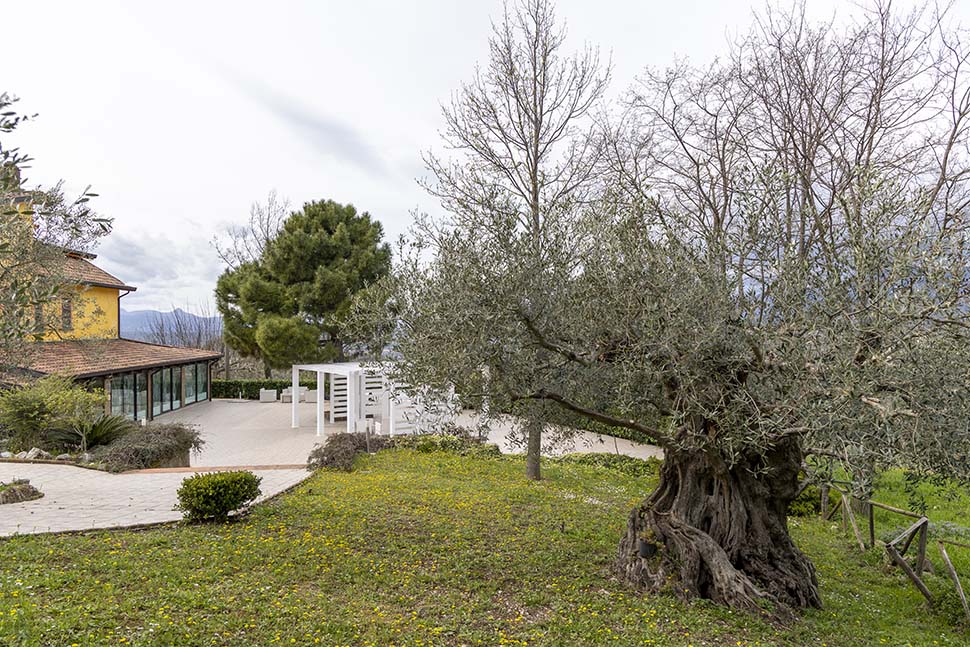
The small medieval village, with its stone houses and historic buildings, evokes forgotten eras: in Piazza Roma is the castle of the Caracciolo family characterized by Ghibelline battlements running throughout the architecture, sturdy walls and tiny windows. It stands at the center of the town, dominating it: once the residence of nobles who exercised their power over the community, today it is instead a symbol, a landmark for locals and visitors alike.
The chef
It was in this very area that two passionate brothers in 2017 decided to start Locanda Radici, a mature, conscious and conscientious initiative, so much so that in 2023 it received the “No food waste” award from the Gambero Rosso. Angelo D'Amico, born in Vico Equense, offers Mediterranean cuisine that is pure, free of frills, original but above all genuine and overwhelming, as well as refined.
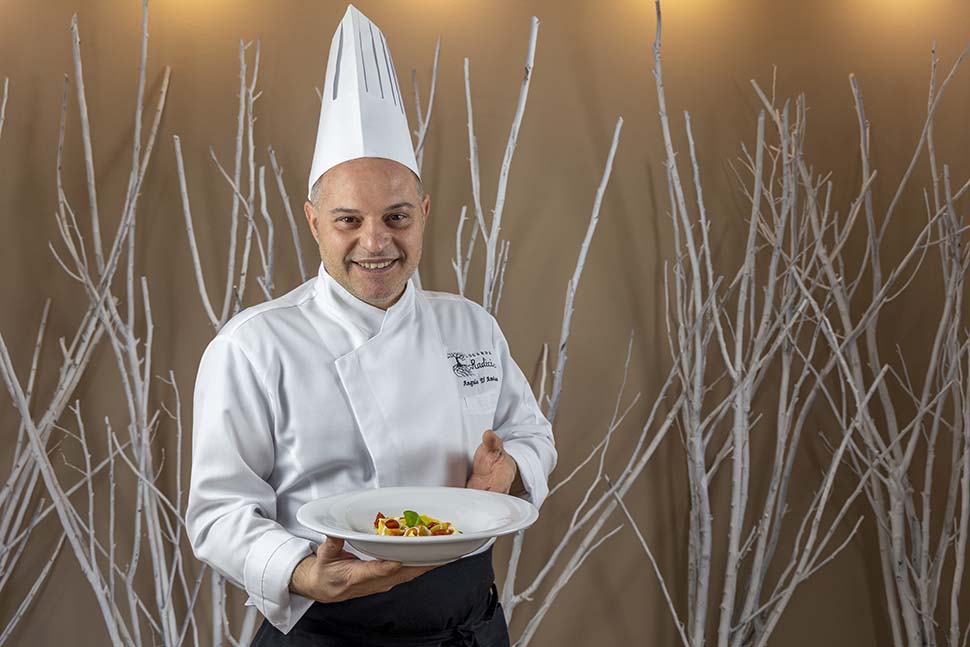
"Customers usually get up from the table very light and satisfied at the same time, it means we are going in the right direction. Winning formula not only for them, but also for us: me in the first place at home I want to eat well, “ declares the chef. With an experience behind him of 25 years, and an important resume, he immediately confronted modern techniques without ever forgetting his origins: the recipes of his grandmother Lucia, baker, queen of pollo alla cacciatora, were the starting point to reinvent the intense scents of childhood and the land he has always lived.
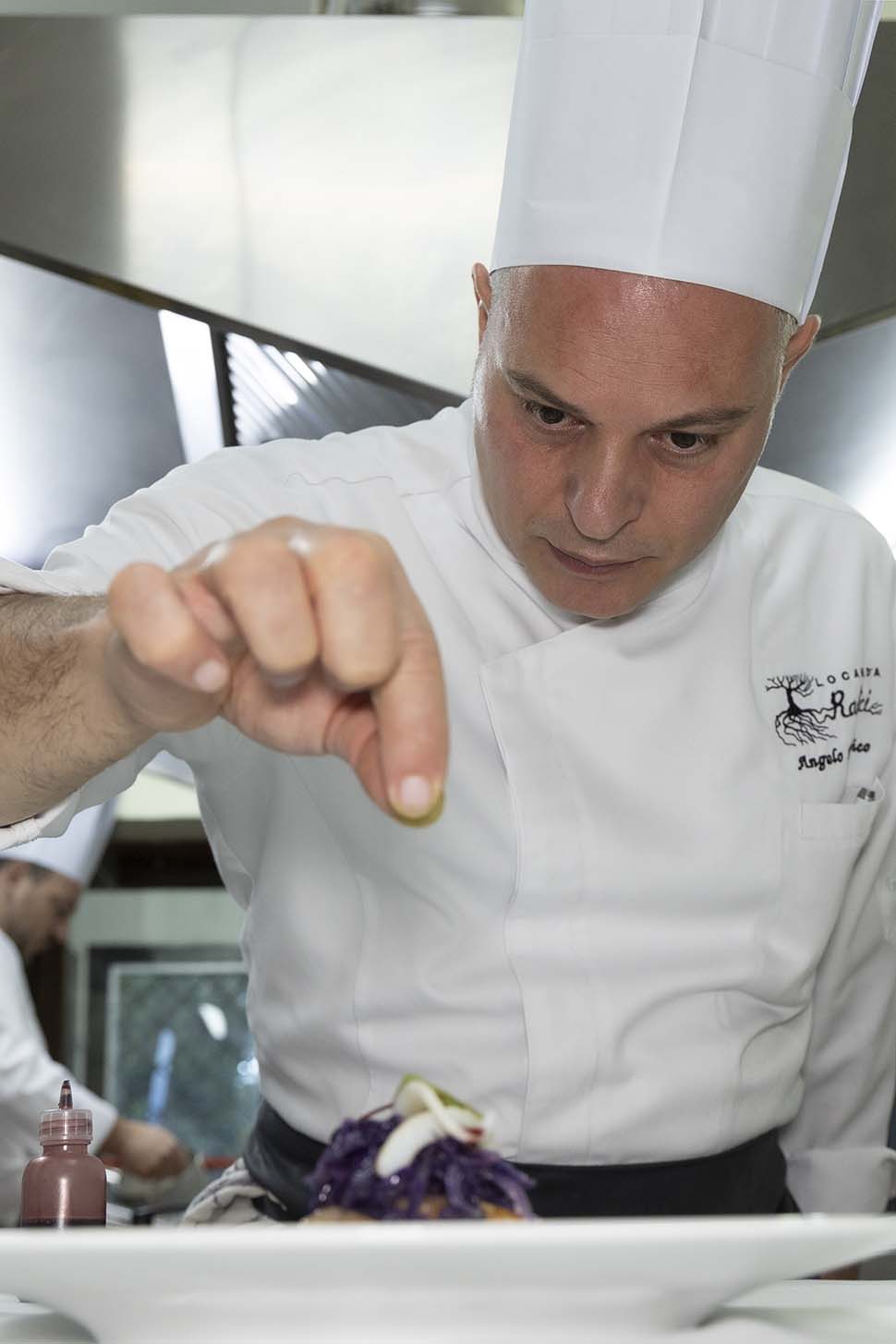
After graduating from the Benevento Hotelier Institute, he left at a very young age, beginning his career in Rome atEden with Enrico Derflinger. Then working at Palazzo Sasso in Ravello with Anthony Genovese, then at Cracco Peck in Milan, continuing in Oxford at Raymond Blanc 's Le Menoir and in Paris at Alain Passard'sArpège. He continued in Labico with Bernardino Lombardo, concluding his training at Antonello Colonna as an executive.
The dishes
The creations he brings to the table are an expression of numerous studies and everything he learned during his travels, although the memory echoes mightily: the past and the present complement each other, since it is good to transform raw material with ingenuity, but it is even better to preserve its essence.
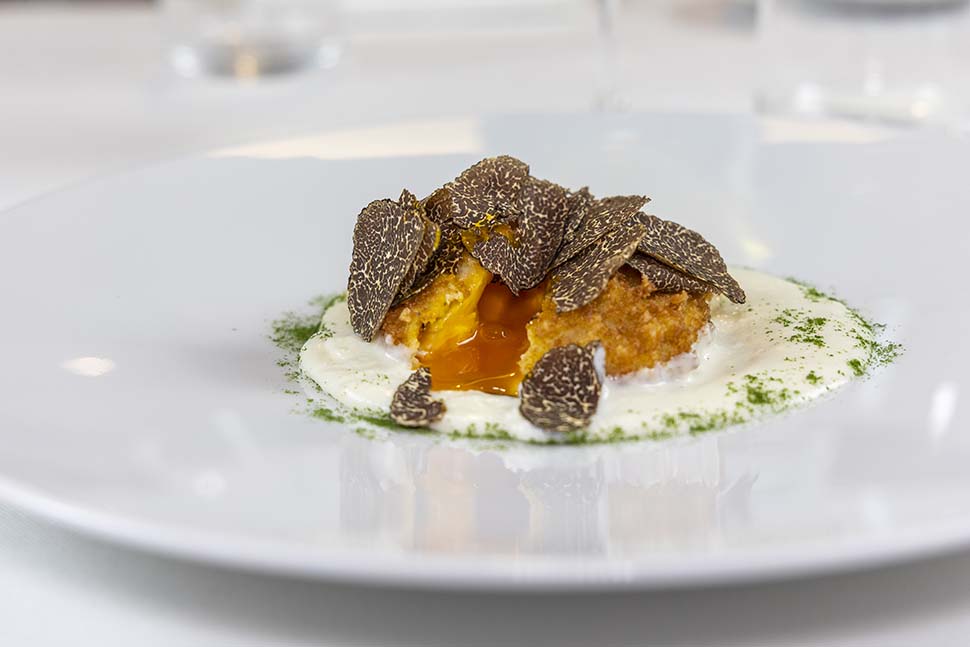
The crispy egg, organic, from hens raised at high altitudes in the Prata Plain, with creamy yolk, buffalo mozzarella and truffle (sometimes white), for example, but also the cappellacci allo scarpariello 2.0 and the risotto with goat blue and falanghina del Sannio PDO.
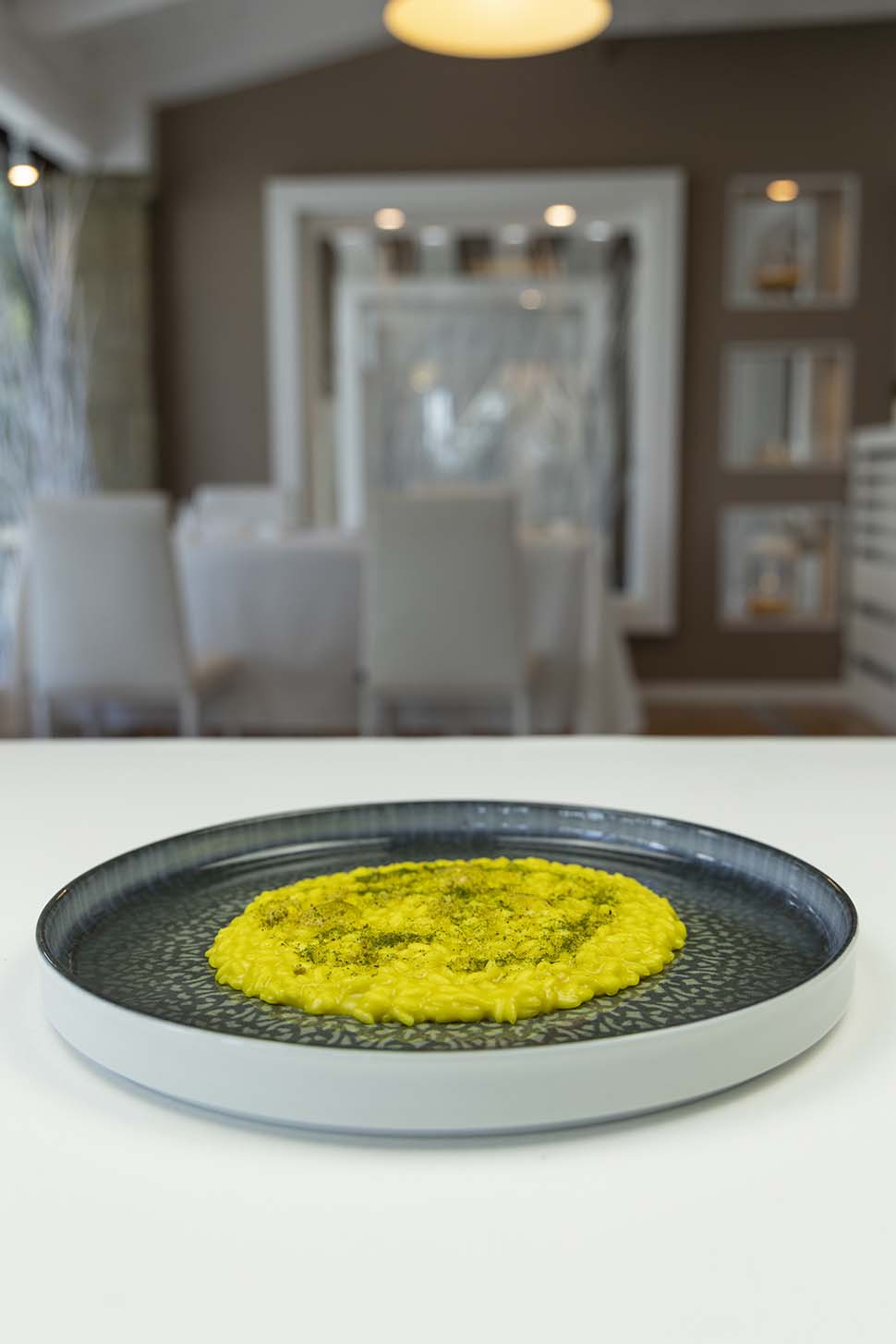
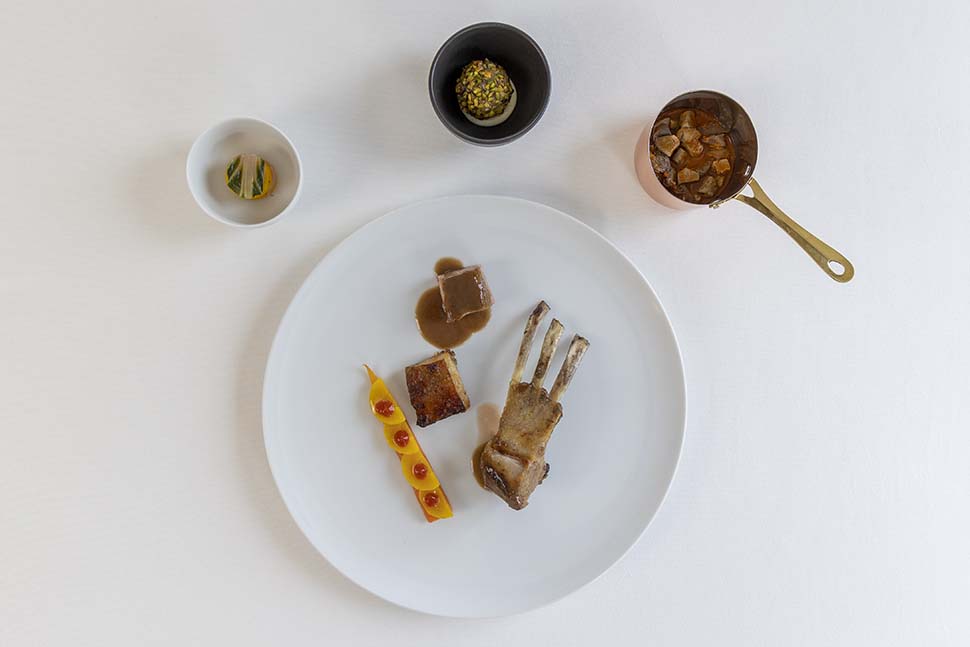
Or the Laticauda lamb (among the best 2024 dishes for critic, and our signature, Marco Colognese): lavender-roasted loin, belly, shoulder patty with mint and pecorino. The breed, raised in the semi-wild, broad-tailed state, is made the most of in three different preparations for three distinct parts of it: each cut is an identity fragment, born not from a single inspiration but from a sum of considerations, and thus reflects on circularity as an element of sustainability in the kitchen- “of the beast nothing is thrown away, with the carcasses we make bottoms”.
Sustainability
Giuseppe D'Amico, a maître and sommelier with a degree in energy engineering, has developed a mathematical-analytical model to assess the environmental impact of each proposal. Savings and CO₂ emissions-with the aim of minimizing them-become the pivotal parameters monitored starting with the production of the products. The careful selection of suppliers, exclusively at km 0, and the special attention that follows in the realization of the courses, allows to signal already in the menu, through the symbol of clover (green, yellow and orange), seasonal dishes, respectful and legible, but also the companies from which they are supplied.
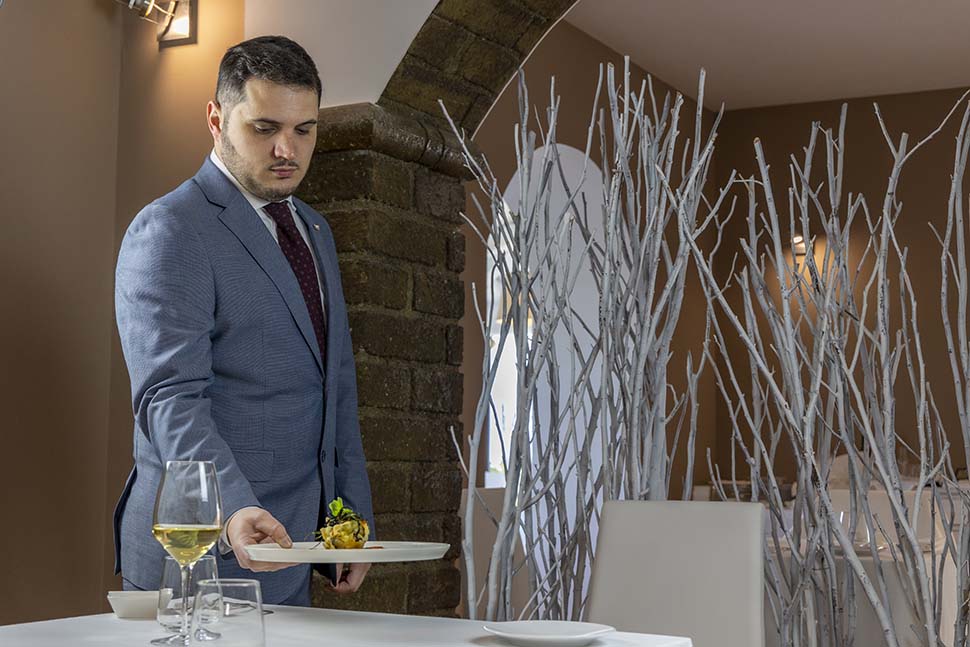
“Prolonged cooking destroys ingredients and consequently authentic flavors would be lost; therefore, I prefer to cook everything on the spot,” Angelo says. "I personally go to local farmers and artisans, initially I had to choose them according to my needs: if I need Salsiccia Rossa di Castelpoto, a pork sausage protected by the Slow Food presidium, I know where to go. As for most of the vegetables, we have one hectare of land that my dad takes care of; the rest are delivered to us in wooden crates. Nothing is contaminated by insecticides".
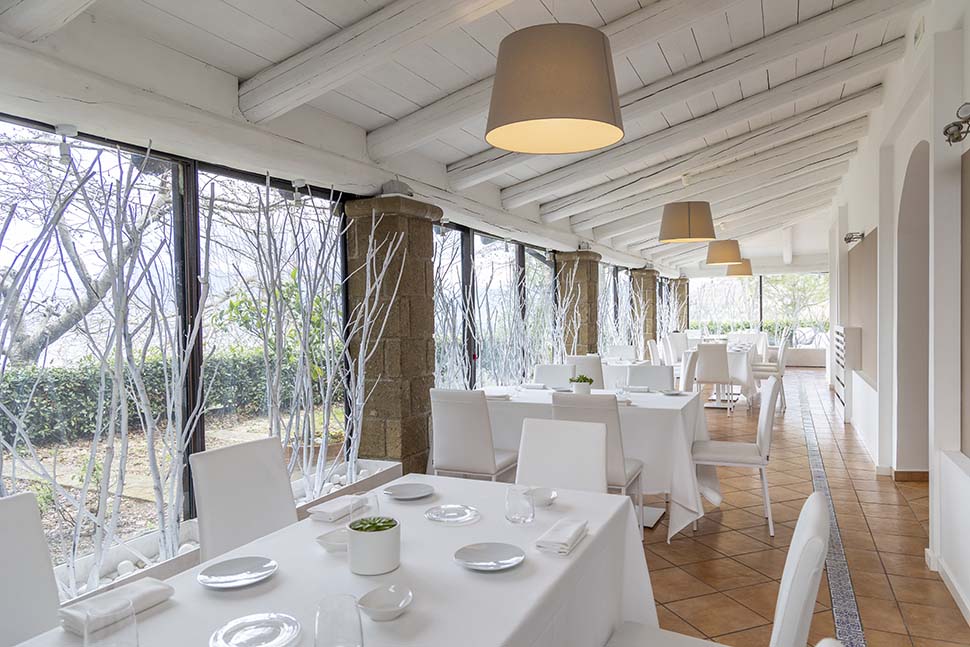
He continues, “Just think that the Department of Agriculture of the Federico II University of Naples took us all the way to Vienna to an international conference, as we were the subject of research analysis in the CWTC24 Culinary and Wine Tourism project; it was made possible because of our dedication and commitment to the ecosystem”.
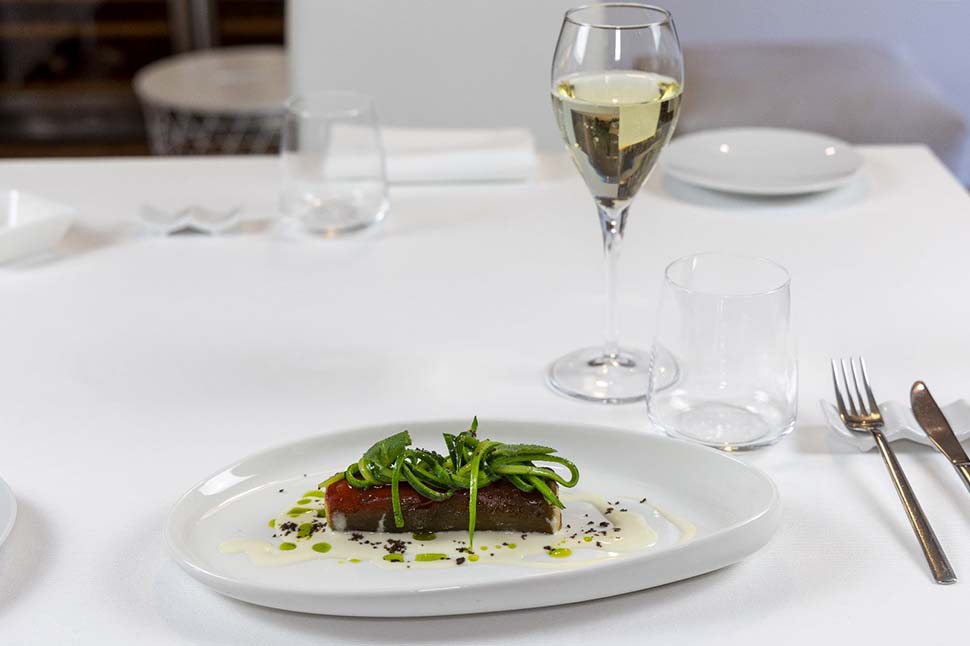
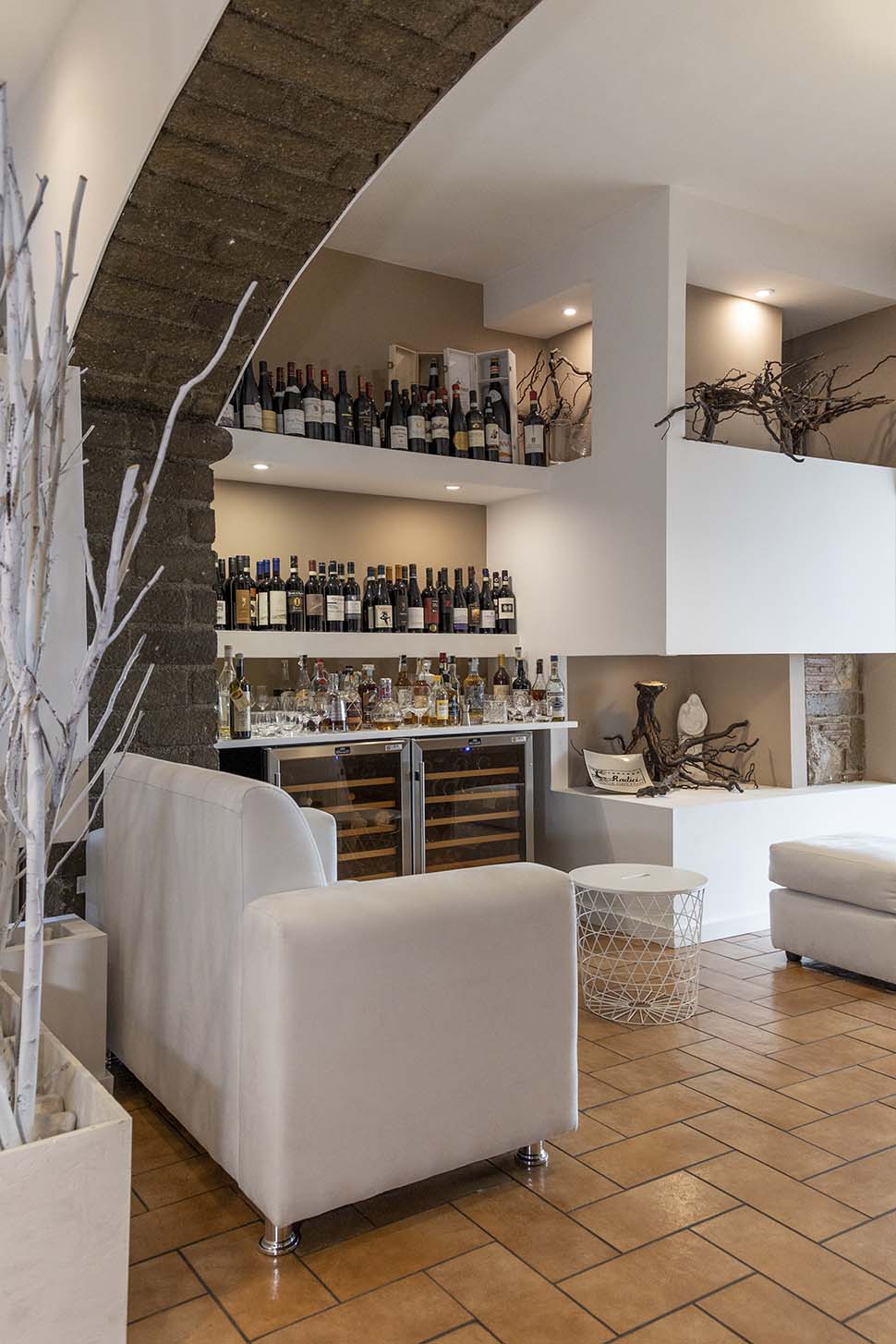
"My goal is to revive dying traditional elements: Senatore Cappelli wheat, Saragolla flour, Taburno beans and saffron, and buried potatoes. The latter are sown in May and harvested between August and September, wrapped in ferns and placed in ditches, later covered, so that they form a dome that closes the hole and protects them from water and harsh cold.".
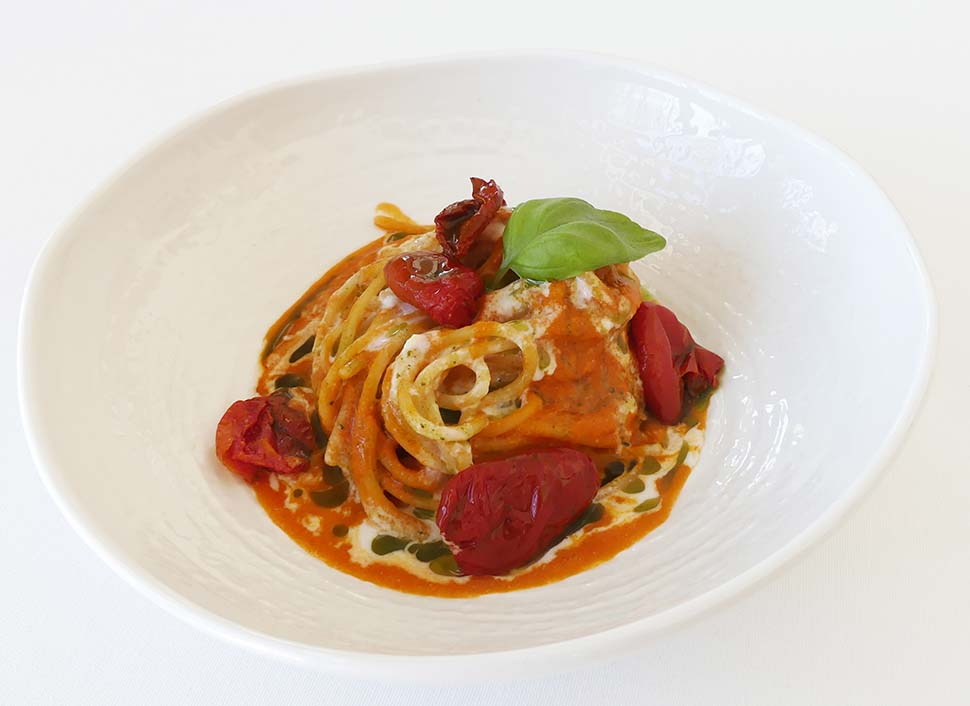
The future? It's dictated by patrons and young people- "Our strength ‘-which is why the Locanda Radici team listens and doesn't let anything slip through their fingers, ’Every week we host about 180/200 place settings maximum, it's synonymous with quality and guarantee. It is a key detail that does not go unnoticed, as well as transparency".
Contact
Address:
SP 21, Provincial Road Frasso Solopaca 5 (Contrada San Vincenzo), 82030, Melizzano (BN)
Phone:
082 4944506
+39 3406901057
Website:
